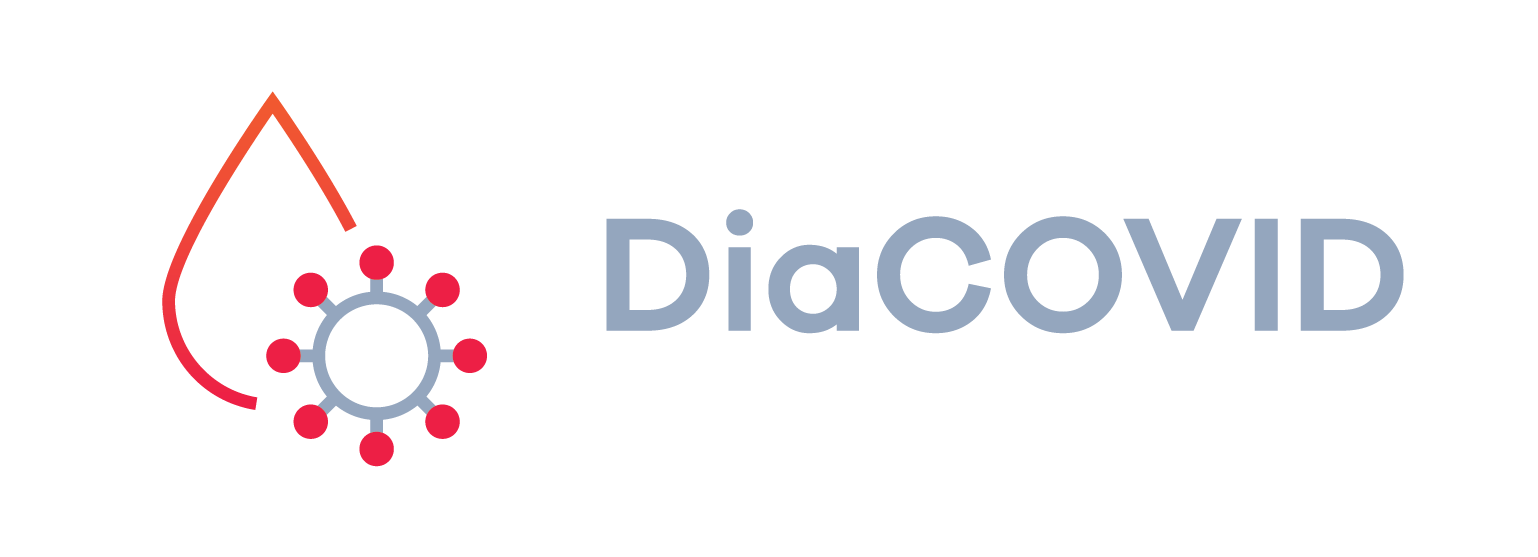Activity
The beneficiary– MEDIREX GROUP ACADEMY n.o.
Research activity 1:
Independent research and development into the relationship between serious lifestyle diseases and COVID-19
The research and development activity within the scope of the presented project will be linked to clinical data and biological samples from the first stage of the existence of the Centre for Research on Severe Diseases and their Complications (www.diaret.sk). At the same time, an expanding clinical study will be conducted, from which clinical data and biological samples will also be archived. The new DNA samples will be subjected to whole-genome sequencing analyses. Their results will be used for research in the field of calculation of whole-genome polygenic risk scores using various alternative algorithms. The calculation algorithms will be developed and validated on a set of patients with selected major model diseases (clinically well-characterized groups of patients with diabetes mellitus and inflammatory bowel disease), both of which are severe lifestyle diseases with many possible complications and comorbidities. Subsequently, the algorithms will be tested on a population sample representative for the general population of the Slovak Republic.
The planned output in the form of a protocol for the calculation of genomic risks will represent a unique project outcome with potential application for the subsequent transfer of new knowledge to clinical practice as a potential component of preventive and personalized medicine. In case of proving the validity of these findings, it will also be possible to consider some form of intellectual property protection – either the calculation procedure itself or the IT tools that will have this calculation implemented.
Given the current COVID-19 pandemic status at the global level and the significantly higher risk of serious complications and the need for intensive care in patients with certain lifestyle diseases compared to the healthy population, the project will focus on identifying and determining clinically relevant biomarkers that may predict potential complications of patients’ condition and thus contribute to specific clinical management, or possibly to personalized patient care in the context of acute respiratory viral diseases (COVID-19). Both studied diseases are under intensive research in relation to COVID-19, however, they both come with a huge number of unanswered questions.
Expansion of the biobank and creation of a genomic database
The aim of this activity is to expand the biobank established during the first stage of the existence of the Centre for Research on Severe Diseases and Their Complications (www.diaret.sk), as well as to establish a new database of genomic data. This research infrastructure will also feature a service application. We are currently researching and defining the basic necessary features that a database management service application must deliver. During the investigation of this activity, we are planning to code the database management service application, test it on dummy data and then use it to store and manage real data during investigation of the project.
Genomic research of diseases affecting the general population of the Slovak Republic – a model study of the calculation of whole-genome aggregate risk in patients with model lifestyle diseases
Calculations of whole-genome aggregate risks are already well described in most recent scientific literature, although using different approaches and results across different papers. The aim of this project activity will be the selection of an optimal computational algorithm for the quantification of genetic risk based on a comparison of the results of genomic analyses and observed clinical data. The calculation of risk specifically depending on biochemical pathways so far has not been published in professional papers. The concept that we hereby present is thus at the stage of formulation and testing of the hypothesis. Within the scope of this project, a comparison of the mentioned approaches will be used in testing of the hypothesis using a comparison of analyses of samples from the two studied groups – patients with lifestyle diseases (diabetes and/or inflammatory bowel disease) and the population cohort. The successful implementation of the activity will lead to the review and optimization of whole-genome risk assessment approaches, and the need for longer-term monitoring of a larger sample of the population to verify the reliability of quantification is also assumed.
Research of biomarkers useful for stratification of patients with model lifestyle diseases and acute respiratory viral infections (COVID-19)
This part of the activity will be dedicated to the investigation of specific aspects of COVID-19 disease in patients suffering from the studied lifestyle diseases. Information on the presence of COVID-19 in patients enrolled in the study – either in one of the studied disease group or a control sample of the general population – will be collected upon enrolment to the study, specifically as part of the health information for the biobank. The provided information will include whether or not the enrolled individual has overcome COVID-19, particular course of the disease, as well as its specific complications (e.g. particular symptoms, duration, overall severity, applied treatment, etc.). According to our working hypothesis, it will be possible to assess the specific complications of diseases of the enrolled patients, both in terms of primary (diabetes or inflammatory bowel disease) and the secondary disease (COVID-19), based on their genomic predispositions.
